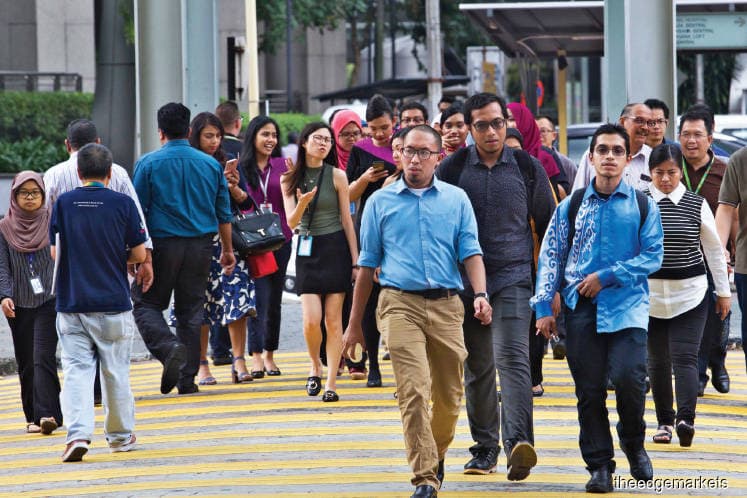
This article first appeared in The Edge Financial Daily on January 22, 2019
There have been so many times when the Christian cross was used or misused to fan religious sentiment and incite anger among the Malay-Muslims of the country that it is a matter of concern.
One incident which comes to mind was in 2015 when a group protested angrily against a church which was situated in a shoplot in Taman Medan in Petaling Jaya, Selangor when the congregation put up a cross on the church building.
The reason for the group’s anger? Taman Medan is a majority Malay-Muslim residential area.
And it’s not only the real cross that can trigger anger apparently. Anything which looks like a cross can have the same effect.
Remember the big hoo-ha in Langkawi, also in 2015? When the air wells of newly completed houses were found to be shaped like crosses, there was anger. Why? Because the house buyers were mostly Malay-Muslims.
Now we are hearing of such anger over the lights of an apartment building in Penang which resemble the cross — prompting Deputy Chief Minister II P Ramasamy to call upon developers to be mindful of the social environment, saying “why invite trouble by displaying something which can be used to provoke anger and concern?”.
I cannot say if that is good advice or otherwise but it came after the display of lights in the building was exploited to raise the heat. Pas’ Nasruddin Hassan for one was quick to pounce, accusing the developer of the building of having a Christianisation agenda.
Political enemies of Pakatan Harapan have been playing the racial and religious cards even before May 9, 2018. The cross is just one of them. There are many more. The underlying message is Islam is under threat and non-Malays are getting bolder under Pakatan’s rule as it is led by DAP lording over the Malay leaders in government.
Of late they are stepping up the accusations. And the sad thing is quite a number of Malays are lapping it all up.
Former journalist Zin Mahmud opines that in the case of the lighted cross in Penang, many Malays are angry because they see the display of a non-Islamic religious symbol as a direct challenge to them and Islam.
He said this could be due to a superiority or perhaps even an inferiority complex of the Malays who are worried they they could be ridiculed and looked down upon by people of other faiths.
Add that to the fanning of sentiments by political forces and race-based NGOs and we have the current situation of Malays pushing their weight around. I don’t have to spell it out except to say that it is sad. It is equally sad that non-Malays are fighting back. We seem to be divided as a nation.
Ilham Centre CEO Mohd Azlan Zainal says it is extremely difficult for Malaysia to be rid of the elements of race and religion in politics because the two issues make up the most effective way to mobilise the masses to protest against the government.
He cited as examples the anti-ICERD protest, the Seafield temple incident and the cross in the Penang apartment issue where sentiment and prejudice were easily fanned — leaving Pakatan appearing to be on the defensive and struggling to find solutions.
The ICERD, which is the United Nations treaty that aims to outlaw all forms of racial discrimination, became a political hot potato after Prime Minister Tun Dr Mahathir Mohamad pledged to the world body in September that the new government would ratify all outstanding human rights conventions.
After Malay rights groups expressed concern that the special rights of Malays under the constitution would be eroded, Dr Mahathir said the government would uphold the constitution.
To Azlan, the Pakatan administration has to tread carefully in balancing the concerns of Malay-Muslims and the non-Malays and non-Muslims who had voted for them.
So what should Pakatan do? To Azlan, tackling the people’s economic problems is one way to address this dilemma. In particular, the government will need to help people overcome the high cost of living. Another priority is to implement reforms, especially in education.
PKR’s Gooi Hsiao Leung does not agree that racial or religious strife will not occur if we get the economy going, “as some politicians will tell you”. He thinks the implication that we will not have to deal with these difficult questions if the economy is doing well is misguided.
Instead, according to Gooi, “we have to start having uncomfortable conversations about difficult issues until we learn to be comfortable talking about them”.
The difficult issues he is referring to are obviously racial and religious issues and not facing them, said Gooi, is like ignoring the elephant in the room.
I agree but just need to add that people, who come to the discussion table to talk about uncomfortable issues, ought to come with an open mind, be willing to listen and adopt new positions if ideas from the other side sound reasonable and logical. Coming to talk about difficult issues with a stubborn or adamant stance defeats the purpose of such talks.
As far the lights that resemble the cross are concerned, Gooi, as we know, had chastised Umno MP Datuk Seri Reezal Merican for politicising the incident.
Many non-Malays agree with him and echo his views. A good number of Malays, however, are upset and call him all sorts of names which I will not repeat here.
In a nutshell a lot needs to be done to arrest such divisiveness. The country needs to unite no matter what the ideological differences might be.
Divisive politics cannot be stopped but can be rejected. The voice of moderation must prevail.
Mohsin Abdullah is contributing editor at The Edge. He has covered politics for four decades.